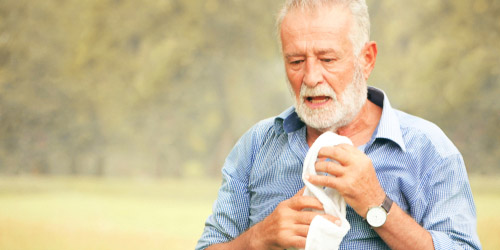Heat Stroke and Seniors:
Awareness and Prevention
Stephanie Griffin | August 13, 2019

Why are seniors most affected?
As we age, our bodies are more susceptible to dehydration, and on top of that elderly people do not sweat as much as younger people do, causing their bodies to overheat. With fixed incomes, seniors are more likely to have a lack of access to air conditioning, and homebound seniors cannot find reprieve in public spaces like movie theaters or shopping malls. Seniors often retire to warm climates, putting them at year-round risk. Also, a senior's medications may lead to a hightened risk of heat stroke.
Symptoms of Heat Stroke
- headache
- dizziness
- muscle weakness
- red/hot skin
- nausea and vomiting
- rapid heartbeat
Prevention
Over the hot summer months, the best form of heat stroke prevention is to protect yourself from the sun - wear a wide-brimmed hat or carry an umbrella, wear sunglasses and apply sunscreen every time you are outdoors. Wear loose-fitting and light clothing to keep as cool as possible at all times. Drink plenty of water and be aware of any dehydration issues that may be a side effect of medications you are taking. During the hottest times of the day, stay indoors and do not do any strenuous activity.
Treatment
Heat stroke can cause brain damage or organ failure, therefore immediate treatment is necesssary when experiencing heat stroke symptoms.
Call 911 immediately when suffering the first signs of heat stroke.
It is essential to lower the body's temperature while waiting for paramedics to arrive. If possible, move to an air-conditioned environment or a shaded area. Remove all non-essential items of clothing and wet or fan skin to cool down. If available, apply ice packs to neck, armpits, and back.
.png)

 (1).png)
